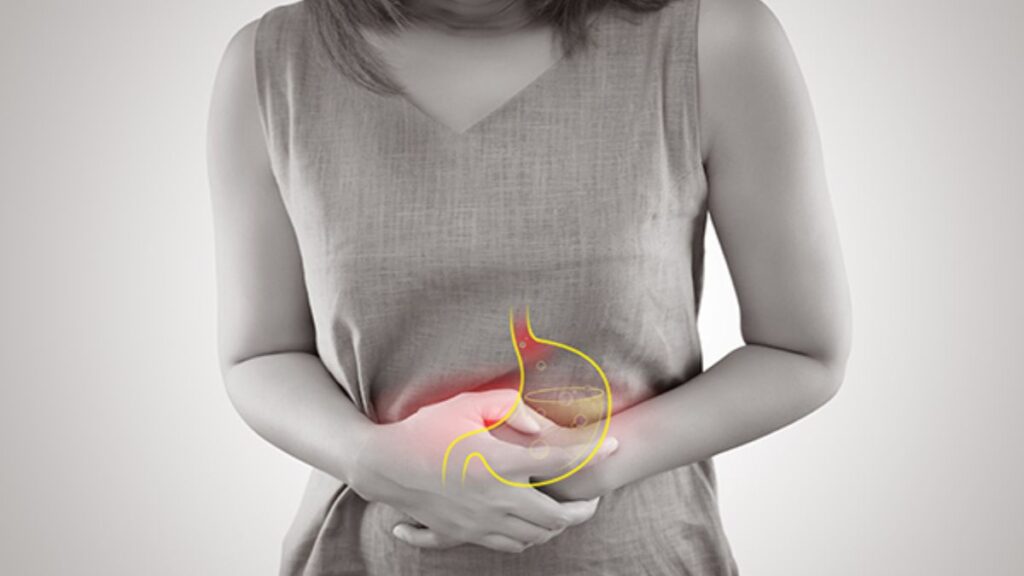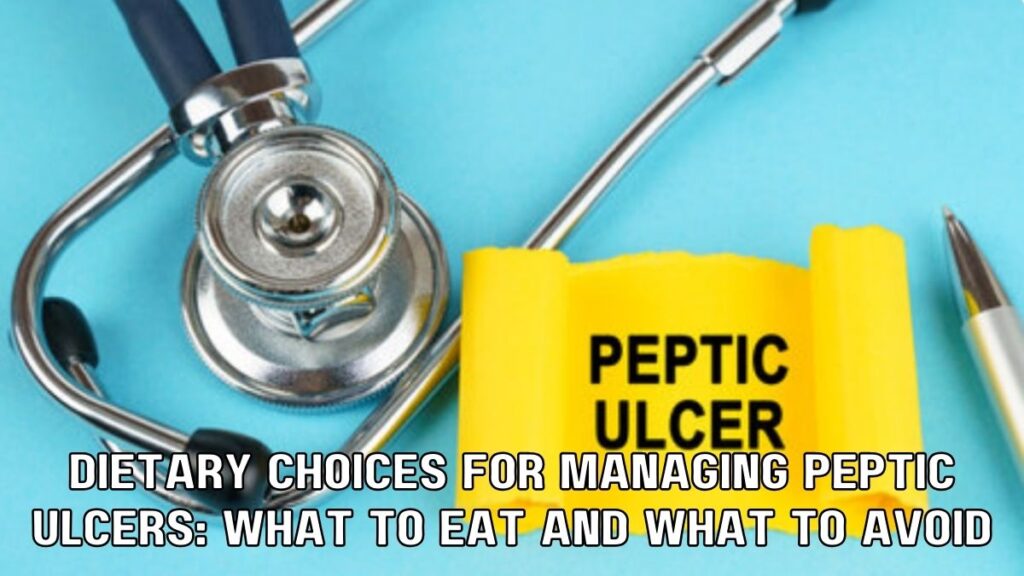Introduction
Peptic ulcers can be a painful and uncomfortable condition, but making the right dietary choices can play a crucial role in managing the symptoms and promoting healing. In this blog, we will explore what to eat and what to avoid if you have peptic ulcers to help you alleviate discomfort and support the healing process.
What Are Peptic Ulcers?
Peptic ulcers are open sores that develop on the lining of the stomach, small intestine, or esophagus. These ulcers can result from various factors, including infection with Helicobacter pylori (H. pylori) bacteria, long-term use of nonsteroidal anti-inflammatory drugs (NSAIDs), and lifestyle factors.

Dietary Choices to Manage Peptic Ulcers
1. Eat High-Fiber Foods:
Fiber-rich foods like whole grains, fruits, vegetables, and legumes can help protect the stomach lining and reduce the risk of ulcers. Fiber promotes healthy digestion and prevents constipation, which can exacerbate ulcer symptoms.

2. Consume Lean Proteins:
Opt for lean protein sources such as skinless poultry, fish, tofu, and beans. These options are less likely to irritate the stomach lining compared to fatty or heavily processed meats.
3. Incorporate Probiotics:
Probiotics, found in yogurt and fermented foods like sauerkraut and kimchi, can help maintain a healthy balance of gut bacteria. This balance may support the healing of peptic ulcers.
4. Choose Anti-Inflammatory Foods:
Include foods rich in anti-inflammatory compounds, such as ginger, turmeric, and omega-3 fatty acids from sources like salmon, flaxseeds, and walnuts. These can help reduce inflammation in the digestive tract.
5. Opt for Low-Acidity Foods:
Highly acidic foods and beverages can exacerbate ulcer symptoms. Limit your intake of citrus fruits, tomatoes, and acidic juices, and consider non-acidic alternatives like apples and pears.
Foods and Substances to Avoid:
While making healthy food choices is crucial, it’s equally important to steer clear of items that can worsen peptic ulcers:
- Spicy Foods: Spicy dishes can irritate the stomach lining and exacerbate discomfort.
- Caffeine and Alcohol: These substances can increase stomach acid production, leading to irritation.
- Carbonated Drinks: The carbonation in sodas can expand the stomach and potentially worsen symptoms.
- Processed and Fatty Foods: High-fat and processed foods can delay digestion and contribute to stomach discomfort.
- Tobacco: Smoking can hinder ulcer healing and increase the risk of complications.
Conclusion
Managing peptic ulcers through dietary choices is a crucial aspect of treatment and prevention. By adopting a diet rich in fiber, lean proteins, probiotics, and anti-inflammatory foods while avoiding spicy, acidic, and irritating substances, you can help reduce symptoms and support the healing process. However, it’s essential to consult with a healthcare professional or a registered dietitian to create a personalized dietary plan tailored to your specific needs and circumstances. This will ensure the most effective management of peptic ulcers and a faster path to recovery.

